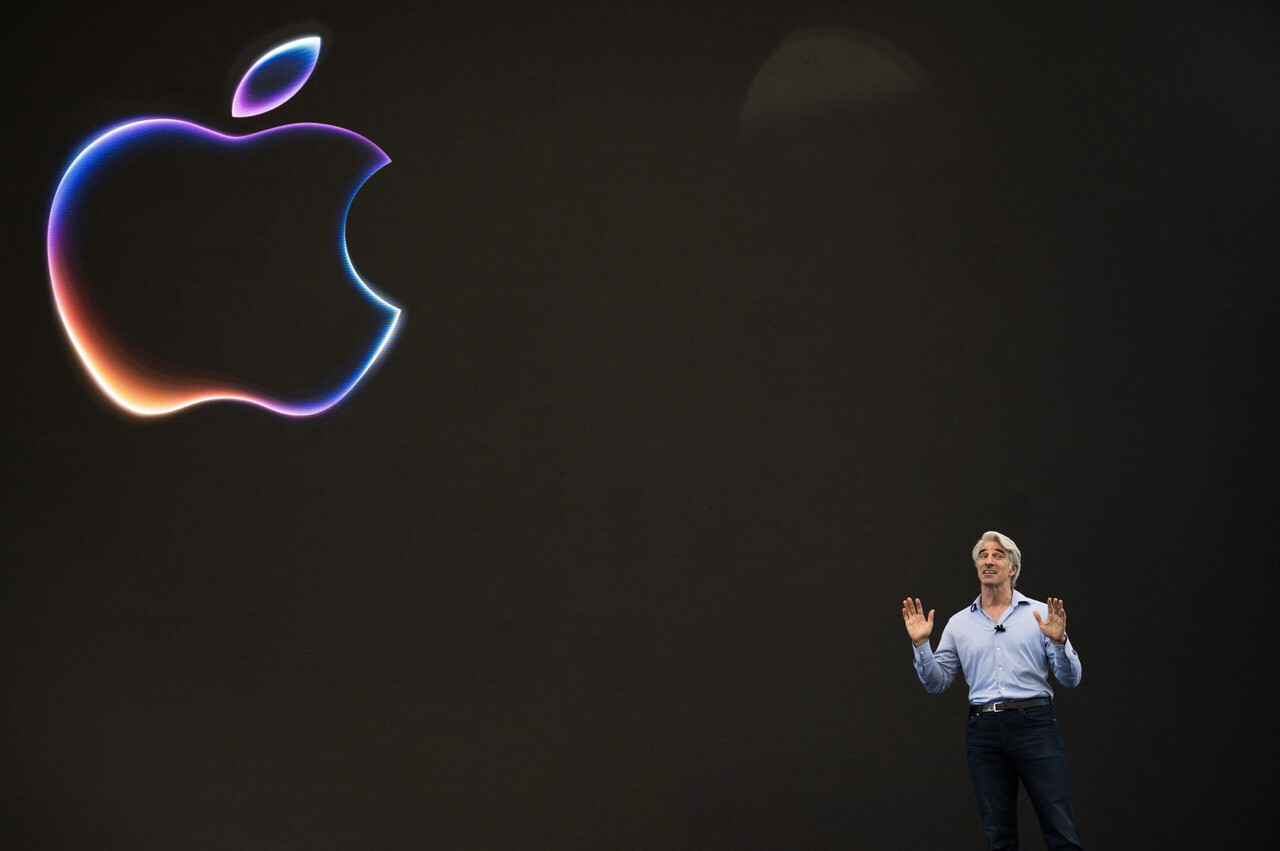Apple unveils advanced intelligence features sans ‘AI’ reference
 Craig Federighi, Apple senior vice president of software engineering, speaks during Apple's annual WWDC in Cupertino, California on June 10, 2024. (AFP Images)
Craig Federighi, Apple senior vice president of software engineering, speaks during Apple's annual WWDC in Cupertino, California on June 10, 2024. (AFP Images)
In a momentous revelation, Apple Inc. introduced “Apple Intelligence” on Monday, integrating artificial intelligence capabilities into the foundational software powering its renowned suite of devices. The announcement, made during the company’s annual Worldwide Developers Conference, marked a pivotal moment in the intersection of technology and user experience.
During his keynote address, Apple’s CEO, Tim Cook, underscored the profound implications of recent advancements in generative intelligence and large language models, asserting, “Recent developments in generative intelligence and large language models offer powerful capabilities that provide the opportunity to take the experience of using Apple products to new heights.”
Of paramount concern throughout the presentation was the issue of user privacy. Apple executives emphasized the rigorous privacy safeguards embedded within Apple Intelligence, ensuring that advancements in AI would not come at the expense of user data security. These measures, intricately woven into the fabric of Apple’s ecosystem, are engineered to empower Siri, Apple’s digital assistant, and other products, while steadfastly safeguarding user privacy.
At the heart of Apple’s innovative approach to AI lies the integration of on-device large language and diffusion models, facilitating the delivery of intuitive features across iPhones and other devices. This on-device semantic index enables seamless information retrieval across disparate devices and applications, enhancing user experience while upholding privacy principles.
Moreover, Apple has deployed private cloud compute capabilities, enabling Apple Intelligence to harness the power of larger server-based models while preserving user privacy. These servers, fortified by Apple Silicon, ensure that user data remains under the user’s control, never stored or transmitted to Apple servers, thereby fostering trust in the platform’s privacy-centric ethos.
Unlike conventional AI implementations, Apple Intelligence transcends the confines of individual applications or services, permeating various facets of user interactions across the software spectrum. With over one billion users now equipped with an AI agent through iOS 18, Apple stands poised to redefine the user-device dynamic.
Noteworthy among the capabilities of Apple Intelligence is Siri’s enhanced acumen in discerning icons, widgets, and text on screens, facilitating seamless interactions with applications. Users can harness Siri to execute an array of tasks, ranging from summarizing notifications, texts, and emails to distilling meeting notes and voice memos.
Significantly, speakers refrained from employing the term “AI” throughout the presentation, opting instead for “Apple Intelligence,” emblematic of Apple’s distinctive approach to AI integration.
The introduction of Apple Intelligence heralds a watershed moment in the tech sphere, promising to recalibrate the nexus between users and their devices by harmonizing advanced AI capabilities with robust privacy safeguards. As Apple continues to chart new frontiers in artificial intelligence, users can anticipate further refinements to their digital experiences across the Apple ecosystem.



